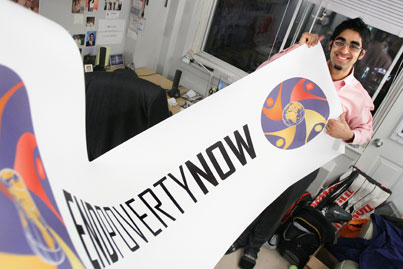“The End of Poverty” panel, hosted at Thomson House on Oct. 17, examined the possibility of implementing a universal livable income policy in Canada through an anti-racist, feminist lens. With a livable income policy, the federal government would provide residents with enough money to cover their essential needs. Panelists discussed how to design such a policy to best address the needs of immigrants, women, and people of colour.
The Asian Women for Equality Society (AWCEP) hosted the panel, which was moderated by Yelp Senior Community and Marketing Director Risa Dickens. AWCEP member and event co-coordinator Sarah Mah, University of Manitoba Community Health Sciences Professor Evelyn Forget, and Senator Kim Pate also sat on the panel.
According to the panelists, a truly inclusive policy would be publicly funded and universally accessible to all people living in the country regardless of their migratory status or the ways they plan to spend the money. Mah additionally called for the policy to address the challenges that women, in particular, face.
“We know that fighting male violence and promoting equality and creating alternatives to harmful industries such as prostitution must [impact] women’s economic insecurity in some way,” Mah said. “Canada is a wealthy country committed to human rights and equality and we have an obligation to offer women viable alternatives so that violence is not something we have to endure.”
Forget then presented a portion of her research on a livable income experiment in Dauphin, a small city in Manitoba. From 1974 through 1978, a mixture of federal and provincial funds went to providing a guaranteed stipend amount based on family size and salary to the 30 per cent of Dauphin’s population with the lowest income.
The results of the experiment suggested that the policy alleviated poverty. Forget found that over the four years, hospital visits in Dauphin declined by 8.5 per cent because residents had the necessary resources to sustain their mental and physical health. Forget also suggested that the additional funds may have eased families’ need to rely on their older children for support, enabling many of the children to complete high school degrees. According to the panel, a similar policy on the national scale—whether funded by a carbon tax, a tax on cannabis, or a more progressive tax system—might produce similar results.
“Kids in this little town in the middle of the prairie are all of a sudden staying in school a little longer [as the result of a universal livable income],” Forget said. “People’s lives are being transformed by that decision.”
The panel also invited community leaders to express their hopes and concerns about a basic income policy, including representatives from Movement Against Rape and Incest and Consultation of the struggles against sexual exploitation. Cherry Smiley, a member of Indigenous Women Against the Sex Industry, addressed the relationship between Canada’s colonial history and its economic wealth.
“Canada’s wealth comes off our backs as indigenous peoples and particularly indigenous women, literally over our dead bodies,” Smiley said. “How can a guaranteed livable income be part of a decolonizing project?”
Although several panelists qualified that a universal livable income would not provide sufficient reparation in and of itself, they agreed that it might play some role in Canada’s process of reconciliation with indigenous peoples.
“Think of all the public struggles being led by indigenous women, missing and murdered indigenous women, over-incarceration, the Cindy Blackstock challenges,” Pate said. “At the core of this is a status of unequal distribution of resources after they’ve already been stolen. One of the strategies of decolonization would be to insist that those resources be made available in addition to acknowledgment and breathing life into treaty responsibilities.”
The panelists concluded that any lobbying for a livable income policy must focus on the concerns of the people it is supposed to support.
“If you are a woman, if you are racialized, or if you come from a working class background, I hope you leave this forum with the confidence that our perspectives are central to making any livable income policy work for us,” Mah said. “It’s worth fighting for.”









